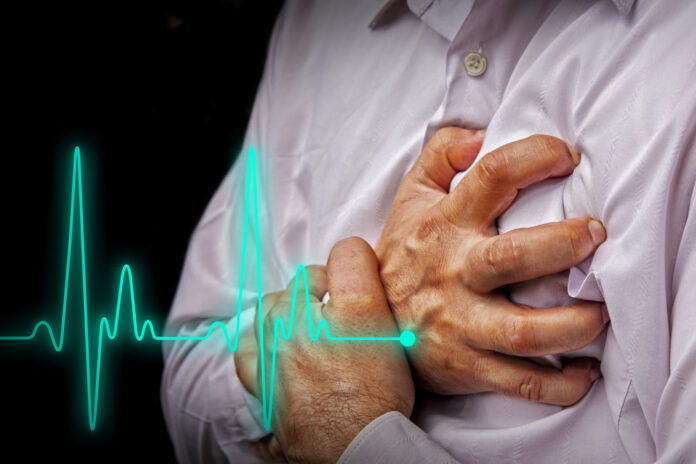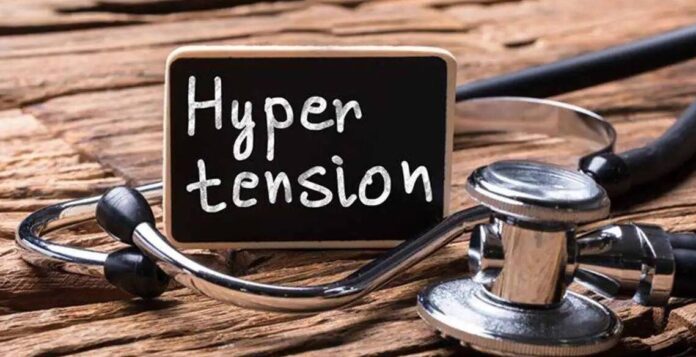Hypertension, or high blood pressure, usually isn’t apparent right away. In fact, you can live with the condition for years and not know it. That’s serious because the results of untreated hypertension can be deadly.
Hypertension can damage the arteries, heart, brain, kidneys, eyes, and cause sexual dysfunction. Often referred to as “the silent killer,” this damage begins long before you may notice a single symptom. That’s why it’s important that you monitor possible symptoms even if you think you’re young and healthy.
Hypertension is treatable and doing so can limit the damage it will wreak to your body over time. Knowing the symptoms is the first step in getting in front of the disease. Here are five signs you may be suffering from hypertension.
1. Moderate to Severe Headaches

Headaches can be caused by a lot of factors. Dehydration, lack of sleep, too much or too little caffeine, alcohol, stress, and excessive screen time are a few triggers. It can be tough to discern whether your headaches are routine or a sign of high blood pressure.
You should talk to a doctor if you experience moderate to severe headaches that don’t respond to over-the-counter pain relievers. The same goes if they become more frequent or begin to interfere with sleep or your life in general.
To save yourself the time and effort of seeing a doctor in person, consult an online doctor. This is an easy way to talk about your headaches and explore any other symptoms you may be having. Hypertension is a health condition your online physician can monitor and treat as well, from the comfort of your own space. Learn more about online doctor visits and how they provide convenient care for patients 24/7.
2. Irregular Heartbeat

You may think your heart figuratively skipped a beat when you fell in love. But when your heart actually skips a beat or beats irregularly, it’s a sign of trouble. Potentially, it’s a sign of hypertension.
Irregular heartbeat, or “arrhythmia,” may be caused by aspects other than high blood pressure. Coronary disease, prior heart attack, congenital heart disease, thyroid issues, sleep apnea, or an electrolyte imbalance could be culprits. Alcohol and drug use, caffeine, some prescription medications, and even cold supplements could also be to blame.
Talk to your doctor to confirm or rule out hypertension as the cause of your arrhythmia. That chest flutter isn’t normal. Treating hypertension may help you get the proper rhythm back.
3. Pounding in Your Neck, Chest, or Ears
It’s normal to feel your heart pound in your chest when you’re exercising or you’re truly frightened. Otherwise, a pounding in your chest, neck, or ears may be a sign of hypertension.
A pounding in your ears, pulsatile tinnitus, keeps beat with your heart and is the sound of your too-high blood pressure. Ringing in the ears, another type of tinnitus, is common with age or after exposure to loud noise. But more than 44% of people suffering from it also have hypertension.
If you experience pounding sensations at rest or ringing in your ears, not associated with loud noise, consult your doctor. They could be signs of too much pressure in your arteries.
4. Nosebleed or Blood in Your Urine

Nosebleeds can be brought on by picking your nose or having allergies. Most of the time, these aren’t anything to worry about. However, if the bleeding is heavy or frequent, they could be a sign of something more serious.
The same is true with blood in your urine. It could be a symptom of kidney dysfunction, and that can be caused by hypertension. It’s worth talking about with your healthcare provider.
If you experience a heavy nosebleed you can’t attribute to an injury, seek medical attention right away. Blood pressure at highs of 180/120 can cause nosebleeds, along with stroke, and other deadly conditions. Neither severe nosebleeds nor routine blood in your urine should be taken lightly.
5. Fatigue or Confusion
Fatigue isn’t the direct result of hypertension, but it’s a direct effect of kidney or heart damage often caused by it. Fatigue can also be caused by lack of sleep, cancer, COVID-19, poor diet, and depression. Whatever it is, you should rule high blood pressure in or out to stop its damaging effects.
Confusion can be a sign of a hypertensive crisis, when your blood pressure is so high it’s inducing a stroke. But the confusion can be more gradual. Hypertension can exacerbate dementia, slow mental processing speed, and thwart executive function of the brain.
Brain fog happens occasionally, but it isn’t necessarily normal. Talk to your doctor if you’re experiencing unusual fatigue or confusion. The sooner your provider can diagnose the root cause, the better.
Heed the Signs

Hypertension is crafty. First, it can occur without any symptoms. Then, its symptoms can be confused with a variety of other health issues.
Hypertension is also non-discriminate. It is not merely a circumstance of aging, reserved only for older adults. Young, active, and otherwise healthy adults may suffer from it as well.
Consulting with your healthcare provider and routinely monitoring your blood pressure is vital. The sooner you catch this silent killer, the faster you’ll be able to treat it. Keep your blood pumping at the right rate for a long and healthy life.









